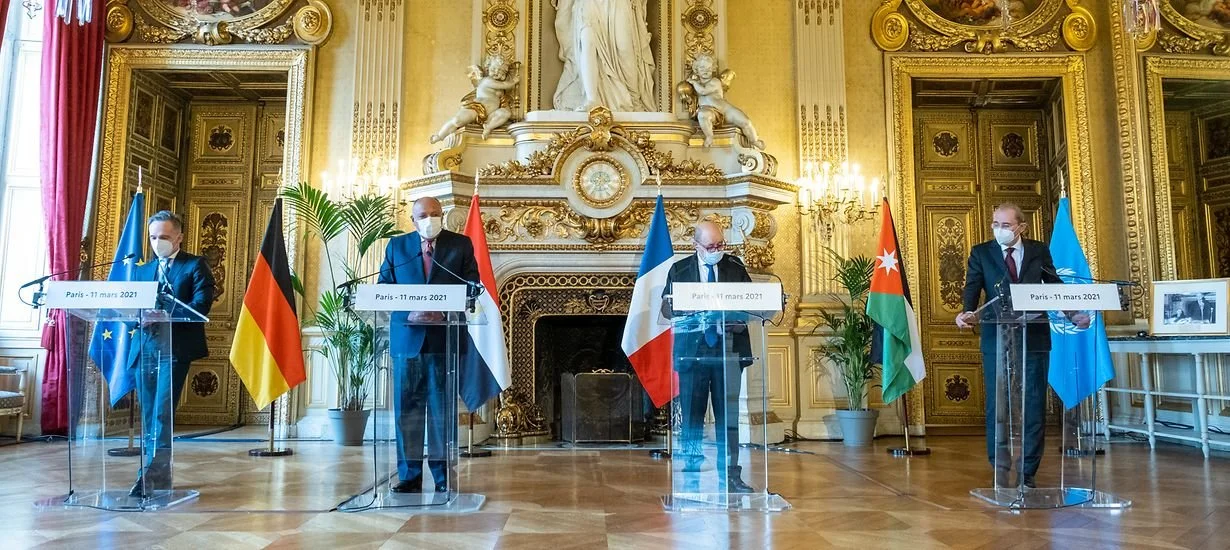Israel - Palestine Ceasefire Only a Beginning
In "The Gatekeepers", six former heads of Israel's secret service agency discuss their activities that show that oppression and counter-violence had never lead to peace and did not stop the Palestinian terror attacks.
Jerusalem - After 11 days of constant bombing, airstrikes, missile attacks, and mob violence in both Israel and Palestine, the war between Hamas and Israel came to an end on Thursday at 2:00 am, with a ceasefire brokered by Egypt. Both sides said that the continuation of the ceasefire would depend on the actions of the opposing party. Following the truce, both Israel and Hamas claimed victory in the conflict with demonstrations. However, how long will the truce stand? The breakout of further violence between Palestinian worshippers at Al Aqsa celebrating the victory and the Israeli police took place just less than 48 hours after the truce.
The ceasefire did not come without criticism. The mayors of Sderot and Ashkelon - two of the Israeli towns hardest hit by rockets from Gaza criticized Netanyahu for halting the conflict too soon. Hamas should have been eliminated, they said. While a Palestinian mother of 11 said "I don't agree to (a truce). What is truce? (...) We returned to our houses, and we found no place to sit, no water, no electricity, no mattresses, nothing."
President Biden announced that the US will provide aid to reconstruct the damages in Gaza, which will be coordinated through the Palestinian Authority, Hamas's rival and backed by the west, in such a way as not to let Hamas restock its military arsenal. Two Egyptian security delegations have arrived in Tel Aviv and Palestinian territories to monitor the truce, as a part of the ceasefire deal.
However, ceasefires are only the first step. This conflict should be alarm bells for the international community to execute a long-lasting peace plan in the region. So far, none of the numerous plans put together has been acceptable to both parties. The peace plans are currently divided into a one-state solution backed by intellectuals, academics, and realists; and a more popular and accepted two-state solution, backed by most governments and the United Nations.
The one-state solution is not acceptable to Palestinians, but more importantly definitely not to Israelis, as such a state would lose the character of a Jewish homeland and would over years constitute a Palestinian majority due to the high fertility rate among the Arabs. But the realists argue the two states solution, that Israelis and Palestinians as well as the international community seek, is dead and no longer realistic. The fact that there are over 600,000 Israelis living in settlements in the west bank and East Jerusalem and that the number is growing exponentially, and the potential need to displace them in case of a two-state solution, make it almost unrealistic.
The Munich Group during their meet on Israel-Palestine in Paris.
The latest credible efforts by the international community towards a proper resolution through a two-state solution of the conflict came from the Munich Group, a group of foreign ministers from Egypt, Jordan, France, and Germany, who met at the sidelines of the Munich Security Conference 2020, to discuss the Israel-Palestine peace process. The fourth subsequent meeting of the group in January this year was supposed to host foreign ministers of Israel and Palestine while COVID restrictions and political sensitivities made it impossible. The group reportedly met with Israeli and Palestinian officials separately this year to work towards progress on either side. The group proposed a freeze on all new settlements to Israel and reconvening a joint civilian committee to the Palestinian Authority, that deals with issues in West Bank and Gaza.
It is not clear how long the present ceasefire will last, but one thing is clear - the responsibility of the international community has not ended, but rather needs a new beginning. To oversimplify things, most of the peace plans boil down to two aspects - The dissolution of Hamas and an end to Israeli settlements in West Bank and East Jerusalem. Without a massive effort by the UN, the Civil Society Organisations, the members of the international community, and the Munich Group in this regard, the ceasefire are just a distraction, it is only a matter of time until the next war starts and we are back to square one.
'Paradise Now' tells the story of two Palestinian friends recruited for suicide bombing as they reconsiders their plans and give up bombing
'Mayor' by David Osit portrays the work of the Mayor of Ramallah and provides a fresh look at Palestine
'5 Broken Cameras' tells the story of Palestinian Emad Burnet as he records his village's resistance to settlements

